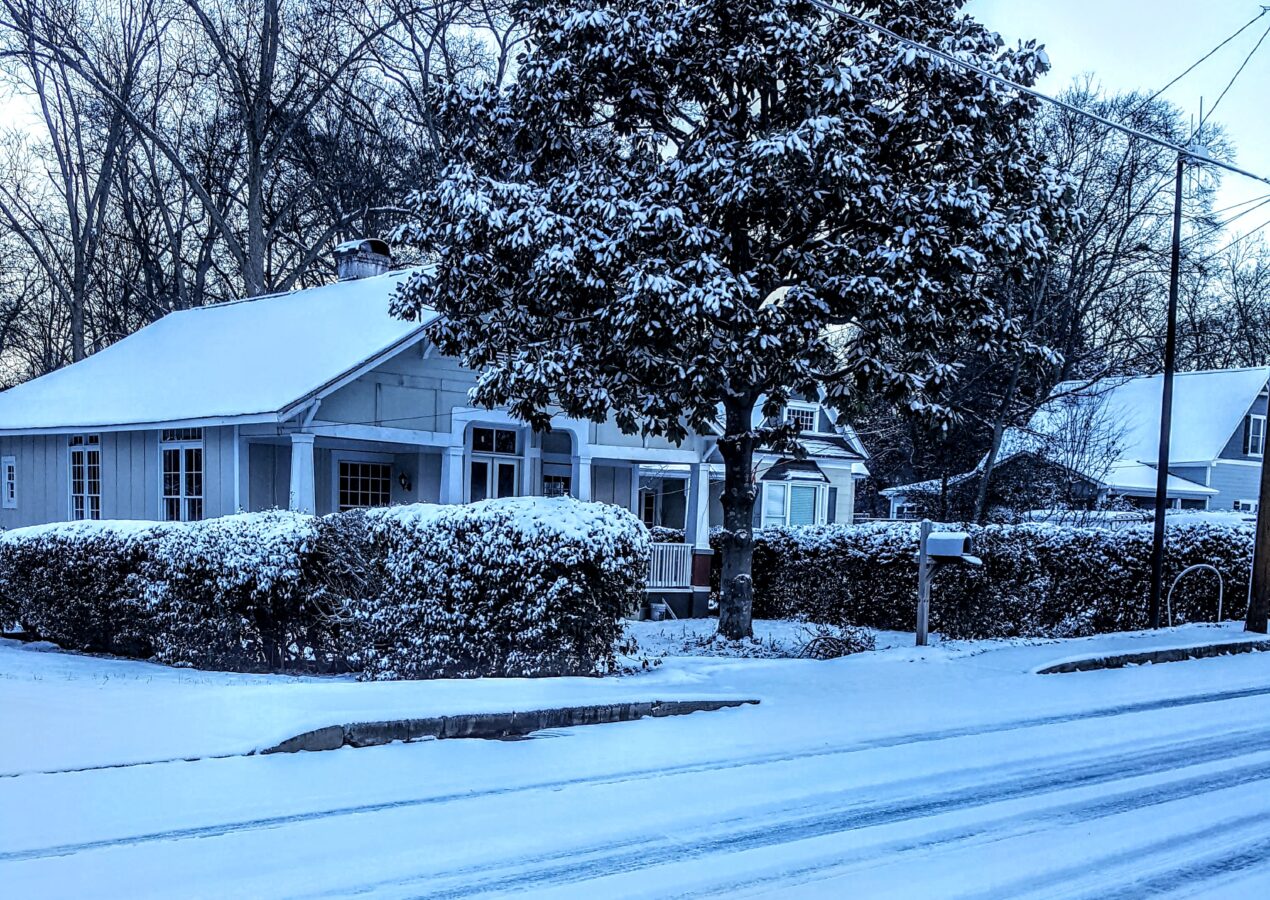We may receive a small commission for clicks or purchases made through our website or emails. This helps us fund the finds we share at no extra cost to you. Thanks for your support!
The weather is drawing coats to the neck and getting everyone to break out their wooly hats right now. Sure, it may be the end of September, and there may still be some sunshine days going on, but that doesn’t mean that you can’t feel the cold creeping up! The winter season tends to last a lot longer than it used to – or at least it feels that way – which is why you need to consider how to protect your home as early as possible.
Protecting your house doesn’t just mean whacking up the heating and adding a few rugs, though these things will help. You need to think about the damage that the cold can bring to the house and protect your home against that, too. This is everything from needing water damage restoration after the pipes burst, to needing to re-tile the roof after loose tiles fly off of it. Your house can be considered as “under attack” by the weather, which is why it’s so vital that you do everything possible to protect it. With that in mind, you have to concise rhow you can get your home ready for winter. Luckily for you, we have seven solid ways to do just that!
Get The Boiler Serviced
This is something that you should be doing at least twice a year, but you need to get your boiler and your furnace serviced. The routine checks that you do every Autumn and Spring will make a huge difference to the heating and hot water efficiency of the house. You can get older boilers replaced and an outdated thermostat upgraded to something smarter, and you can replace it with a programmable one if you really want to make a difference!
Check For Leaks
We’re not just talking water leaks here, though you should do that anyway. Air leaks are a big problem in the home as you are going to find a lot of your heating bill goes on wasted air! Cracks around the windows and doors can cause the heating to leak right out of the house, and so you need to caulk the windows again and make sure that you have weather-stripping around the door frames intact! You need to keep the cold out and the heat in, but the only way you can do this is if you’re sure that the heat is leaking out of the house.
Check Your Chimney
If you have a house with a real fireplace, then you are likely itching to throw a log on and warm the house up. The thing is, if you haven’t checked the chimney is clear to use, all you’re going to do is cause a lot of smoke to flood through the house. Blockages in the chimney can be anything from added soot to a bird who has nested in the brickwork. Soot is highly flammable, and you can cause a horrid house fire when you don’t check the chimney before you use the fireplace.
Get The Gutters Glowing
The gutters gather a lot of guck – or debris – throughout the summer season. The leaves that start to fall mixed with windy conditions leave a lot of debris in the gutters and these block the rain flowing down into the drain. The water makes the leaves turn into a lumpy mess, so you need to ensure that the gutters are cleaned out properly. Clogged gutters can cause leaks in the roof, so it’s worth having a professional check it over as quickly as possible.
Speaking Of The Roof…
We just mentioned the gutters causing leaks in the roof. When was the last time you inspected yours? You need to think about cleaning out the roof cavity on the inside and ensure that there are no loose tiles that could be a cause of a leak. Call in a professional for this one, though, as you may not have the skills or know-how to replace roof tiles alone!
Drain Exterior Faucets
If you have faucets on the exterior walls of the house or the garden, make sure that there is no water left in them. Turn off the faucets outside and disconnect the garden hose. Before you roll it and put it away, though, drain all of the water from it and make sure that there is nothing left inside.
Cut Back The Greenery
Trees that are hanging over the garden and bushes that are in the front of the house need to be carefully trimmed back. This will prevent any damage to the house and to electrical wiring outside the house, too. You can slow down your risk of property damage when you do this, and you will find it easier to manage.

